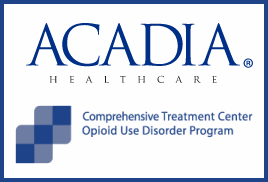 A new study by the School of Medicine and Public Health at the University of Wisconsin found that a patient’s length of treatment is directly tied to lower risk of overdose.
A new study by the School of Medicine and Public Health at the University of Wisconsin found that a patient’s length of treatment is directly tied to lower risk of overdose.
In particular, treating opioid addiction with medication for at least 60 days generated a 61% reduction in the incidence of overdose.
Numerous other studies over the last two decades have shown that positive outcomes are tied to longer duration in outpatient addiction treatment. Not only does greater length of time in treatment allow for physical stabilization with methadone or buprenorphine, but it provides each patient with time to develop improved coping skills and relapse prevention capability.
Higher levels of functioning are able to be achieved, such as gainful employment and improved parenting, when a patient is able to remain in addiction treatment for longer periods of time.
Marguerite Burns, who led the Wisconsin study, found that recovery success and overdose prevention are enhanced the longer that patients take medication over a 12 month period. Medication-assistance plays a key role in helping opioid addicted patients find long lasting recovery.
Impressively, the study was based on treatment outcomes recorded for 293,160 Medicaid patients diagnosed with opioid use disorder.

 The need for social support in recovery is a significant factor. Not only is successful recovery an ongoing challenge, but it is a journey which is greatly helped through positive connection with others.
The need for social support in recovery is a significant factor. Not only is successful recovery an ongoing challenge, but it is a journey which is greatly helped through positive connection with others. 
 It’s no secret that many addicted people resist recovery or treatment, sometimes for years, before eventually deciding to make a change. The mental stress of addiction often paralyzes a person with fear and indecision.
It’s no secret that many addicted people resist recovery or treatment, sometimes for years, before eventually deciding to make a change. The mental stress of addiction often paralyzes a person with fear and indecision. 


